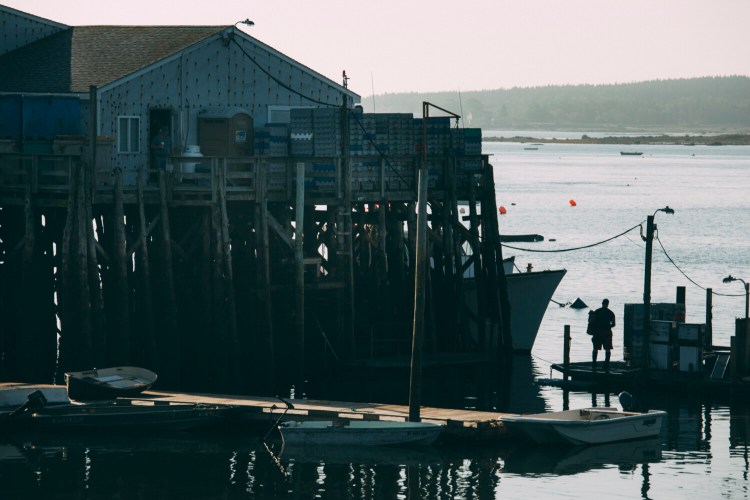The University of Maine and a Dutch aquaculture company are teaming up to help launch a land-based fish farming operation in Jonesport.
Kingfish Zeeland and the university’s Center for Cooperative Aquaculture Research were already working together, and this week’s announcement of a contract is a formalization of their joint efforts, said Megan Sorby, operations manager for the Dutch firm.
The company plans a $110 million aquaculture project in the Down East town, where it hopes to produce yellowtail. The fish is popular in Japan but has yet to catch on in a major way in the United States because of a lack of product, Sorby said. The company plans to build enclosed tanks to raise the fish, but designs are still under consideration and the company has yet to seek permits.
Sorby said she doesn’t know when Kingfish Zeeland would break ground on the project, but she said construction will take about a year. It will then be another year or so before the fish reach marketable size, she said.
Yellowtail are part of the mackerel family, although they resemble tuna. That leads many people to miscategorize the fish, she said.
“It’s definitely not a tuna,” Sorby said.
Yellowtail are often used raw for sashimi, she said, and can be grilled or baked.
They are a warm-water fish, Sorby said, so the water drawn for the tanks will be heated. Kingfish Zeeland plans to design a system that will recapture most of that heat to keep costs down, she said.
Kingfish Zeeland worked with a local university to set up its operation in the Netherlands, she said, and wanted to pursue a similar arrangement in the United States. UMaine has an aquaculture business incubator program in which Kingfish Zeeland and university officials have worked to build up the company’s yellowtail brood stock – a group of mature fish used in aquaculture for breeding purposes – and begin to build capacity for the Jonesport facility.
Sorby said the university already had some yellowtail brood stock, so it was easy to work together on the project.
Once the Jonesport facility is ready and fingerling fish are introduced, she said, it will take nine months to a year until they reach market size of about 4 to 9 pounds.
She said the company was attracted to Maine because of its strong commercial fisheries and its existing aquaculture operations.
“Everything about Maine attracted us,” she said. “There was a really welcoming atmosphere of the state agencies … (which) really embraced us and encouraged development.”
Sorby also said the company is working with a local high school to develop a course about aquaculture.
The project will provide about 70 jobs once it’s operating, she said.
Send questions/comments to the editors.




Success. Please wait for the page to reload. If the page does not reload within 5 seconds, please refresh the page.
Enter your email and password to access comments.
Hi, to comment on stories you must . This profile is in addition to your subscription and website login.
Already have a commenting profile? .
Invalid username/password.
Please check your email to confirm and complete your registration.
Only subscribers are eligible to post comments. Please subscribe or login first for digital access. Here’s why.
Use the form below to reset your password. When you've submitted your account email, we will send an email with a reset code.